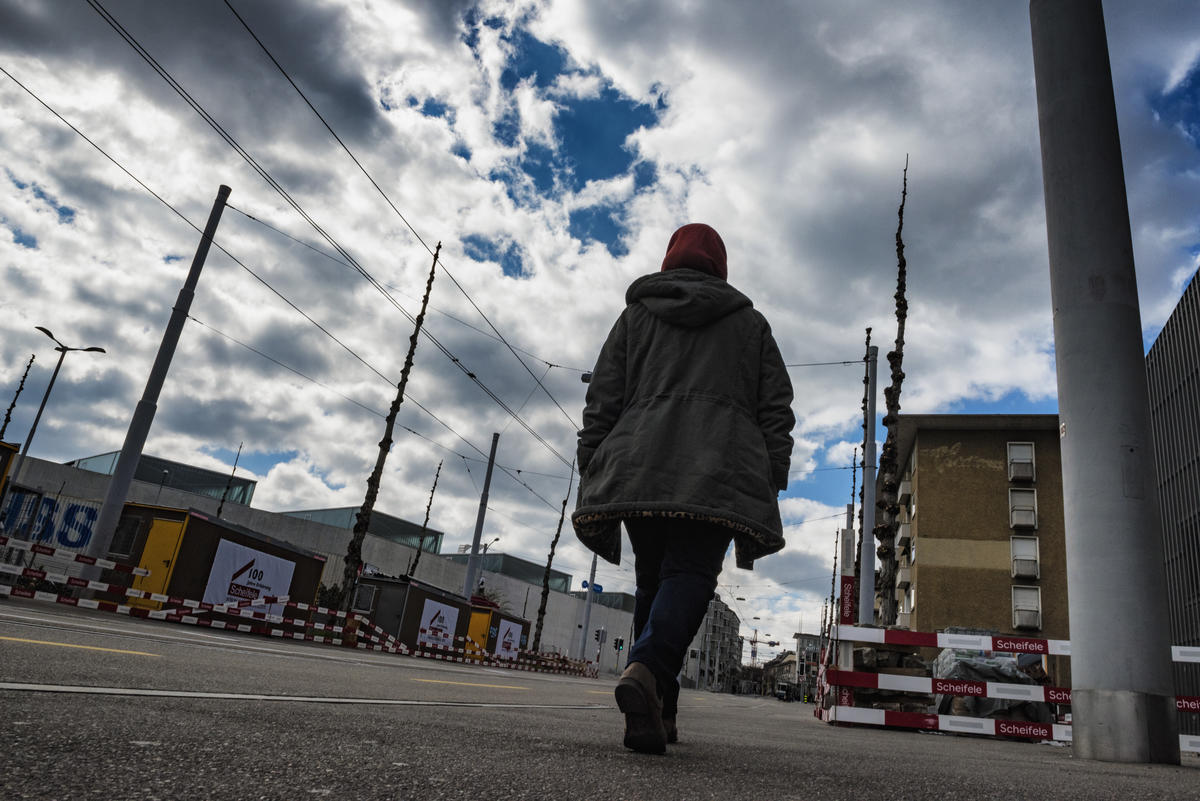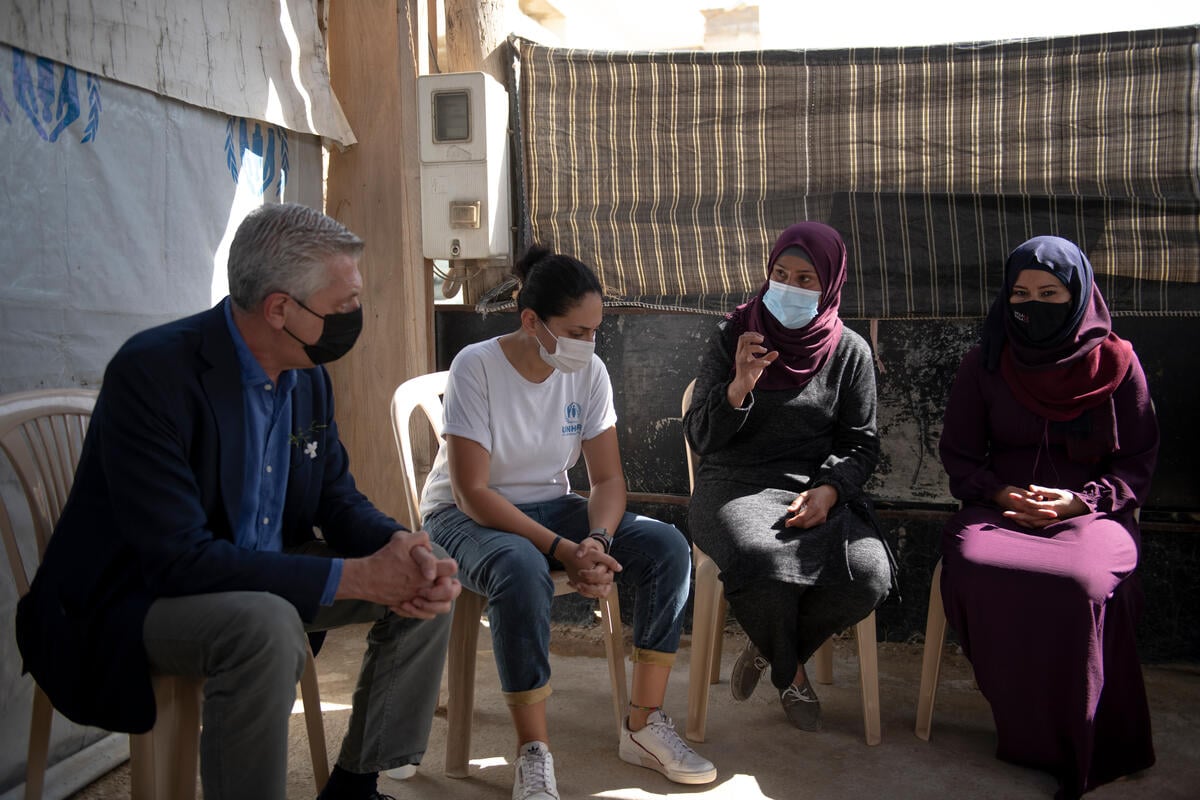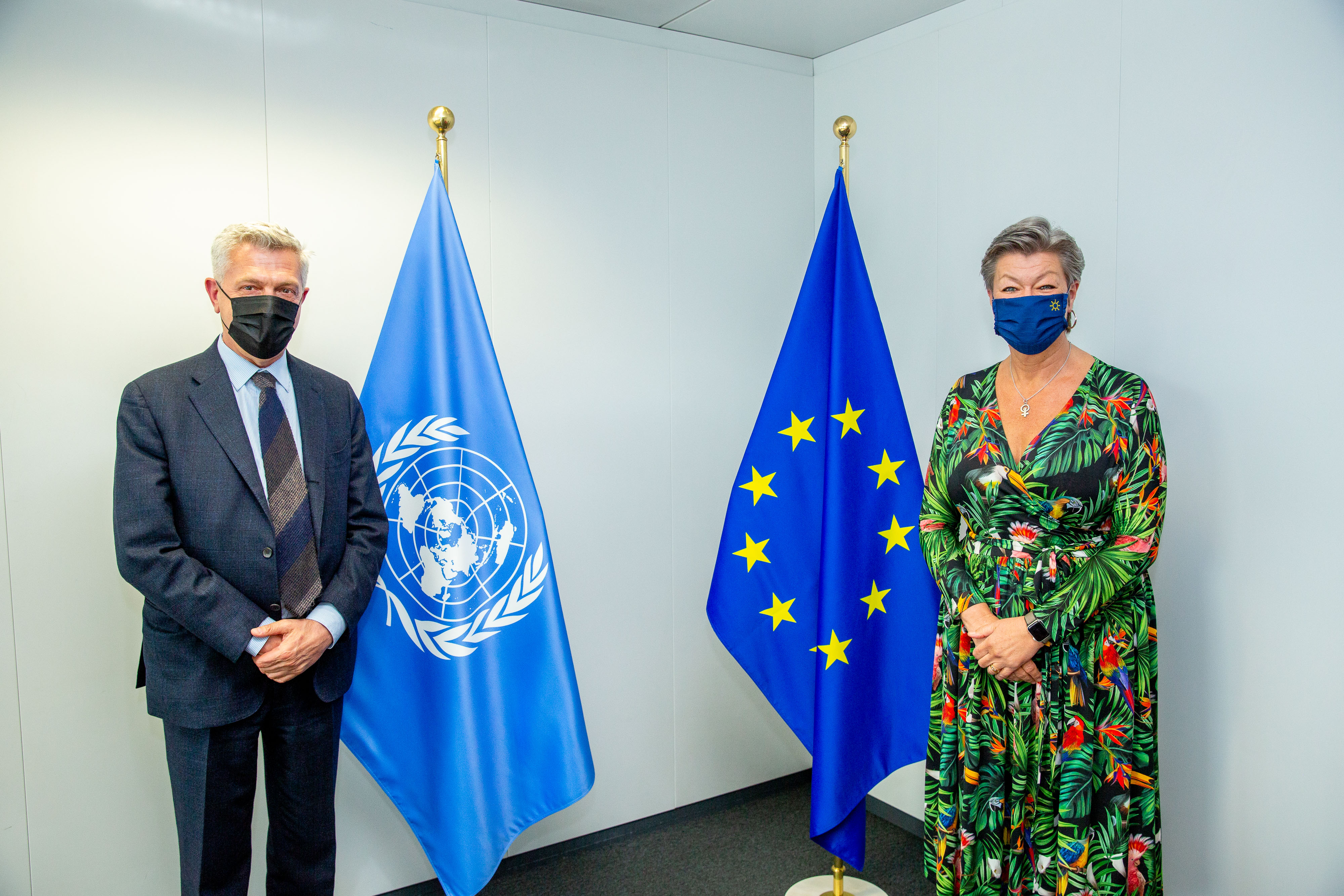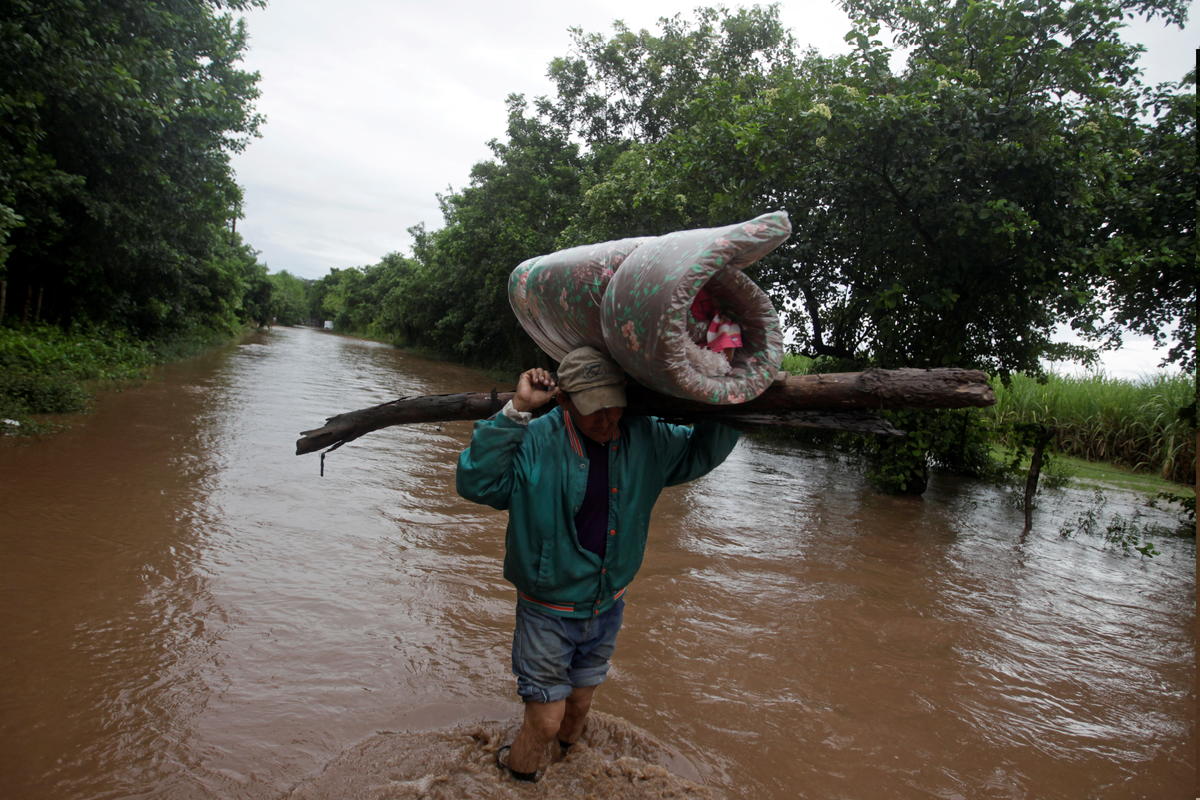UN refugee chief welcomes cities' support for refugees
UN refugee chief welcomes cities' support for refugees
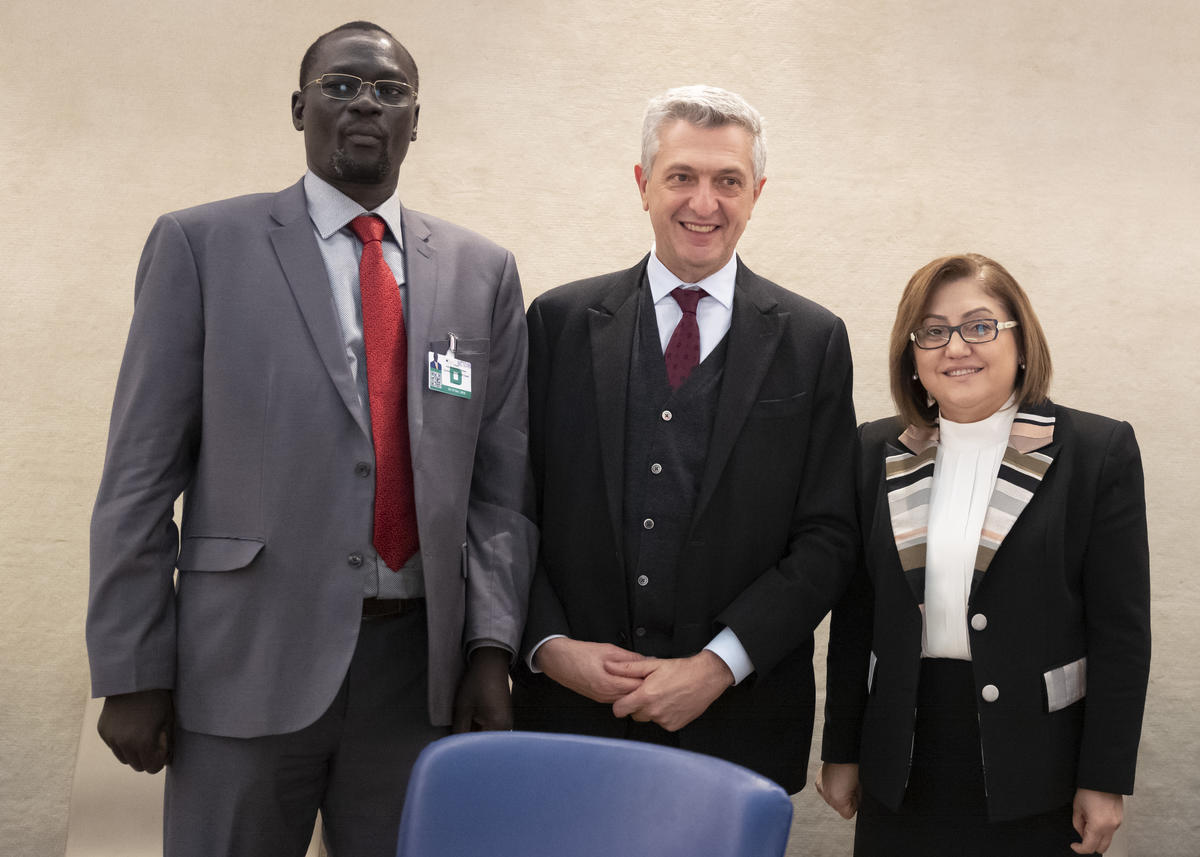
GENEVA – Cities around the world have shown vital leadership by welcoming refugees and giving them a chance to thrive outside of traditional camp settings, the UN refugee chief said today.
Opening a key meeting in Geneva attended by mayors from cities as widespread as Bristol, Gaziantep, Quito and Mogadishu, Filippo Grandi said cities were playing a leading role in the push towards a new approach to hosting refugees, based on openness and inclusion.
“We think that an inclusive approach, based on investment in education and employment, is a much better and more sustainable, more dignified, model that really gives refugees opportunities for the future,” the UN High Commissioner for Refugees said. “It is cities that are at the forefront in implementing these policies.”
Grandi praised the work of the assembled mayors and other local authority representatives from around the world in offering a fresh start to the forcibly displaced.
"We look to you to continue to uphold these values."
“These are all cities that have been really pioneering new approaches in terms of receiving, including and offering opportunities to people on the move,” he said. “I have the greatest admiration for those mayors, for those local authorities … that have taken a stance in favour of solidarity. We look to you to continue to uphold these values.”
Grandi was speaking at the plenary session of the High Commissioner’s 11th Dialogue on Protection Challenges, which is taking place at the Palais des Nations in Geneva on 18-19 December.
Discussions are this year focused on the protection and assistance of refugees, internally displaced and stateless people in urban settings, particularly cities.
Cities are playing a growing role in supporting the displaced today, when around 60 per cent of the world’s 25.4 million refugees live not in camps but in cities and urban areas across the Americas, Europe, the Middle East, Africa and Asia.
"Refugees and migrants represent an opportunity for cities."
Mayors, local authorities, social enterprises and citizen groups are on the frontlines of the global refugee response, fostering social cohesion and protecting and assisting the forcibly displaced men, women and children in their midst.
“Refugees and migrants represent an opportunity for cities,” said Mauricio Rodas Espinel, the Mayor of Quito, Ecuador, which hosts thousands of refugees, many from Colombia and Venezuela. “They bring different visions, perspectives and experiences that can serve as a tool for economic development, for social inclusion and innovation at the urban level.”
Marvin Rees, the Mayor of Bristol, a port city in the west of England, also sees refugees and migrants as an “asset” for the local community.
“We’ve got people working for the council at the moment who came to the country seeking asylum or as refugees, and they are making a phenomenal contribution to life in Bristol. And we want to unleash that potential,” he said.
"I feel surrounded by opportunities."
The emphasis on giving the forcibly displaced a chance to live, study and make their lives in cities and urban areas around the world was also welcomed by young refugees on the sidelines of the forum – among them Foni Joyce Vuni.
Born in Kenya 26 years ago to Sudanese refugee parents, she said the chance to live in the capital Nairobi has allowed her to co-found an organization linking unemployed youths to mentors, and opened up a world of possibilities.
“When you are in the camp, the name refugee defines you. But in an urban area, you just live like a normal person … it makes a big difference,” she said, breaking into a smile. “It enabled me to ask … what can I do next? What else can I do? I feel surrounded by opportunities.”
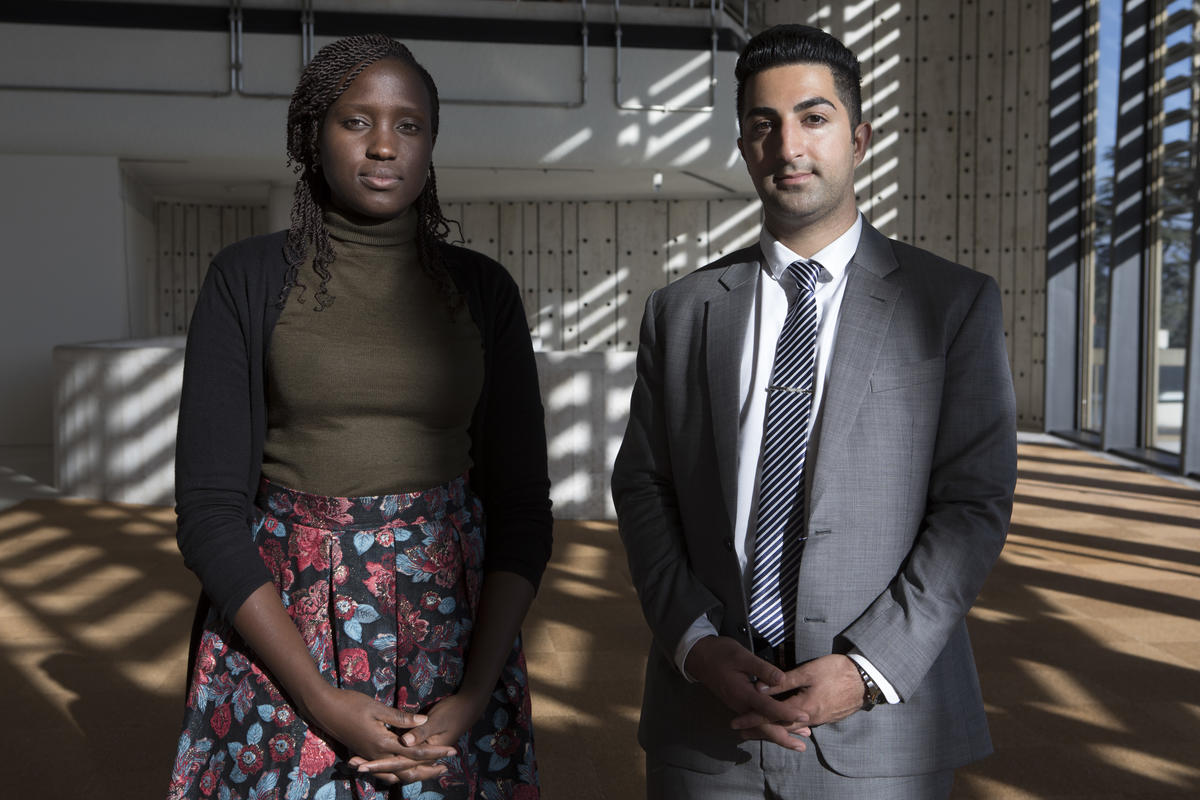
Since resettling to Sydney, Australia, in 2015, 25-year-old Iranian refugee Arash Bordbar has studied for a degree in engineering, and is also a youth worker helping newly arrived refugees to find their feet in his adoptive city.
“It’s given me the opportunity to contribute to society as well. I’m working, I am paying tax, I’m studying, and soon I will be an engineer building the country itself,” he said. “If you are allowed to be in the city you can actually contribute and really showcase your potential.”
The Dialogue began a day after the member states of the UN General Assembly agreed on a new international framework – known as the Global Compact on Refugees – that will transform the way the world responds to mass displacement and refugee crises, benefiting both refugees and the communities that host them.
The new global deal seeks to provide more robust support for the countries where most refugees live, and strengthen the shared responsibility to aid those who are forced to flee by conflict or persecution
The agreement also envisions more resettlement opportunities – such as through family reunification, student scholarships, or humanitarian visas – so that refugees can travel safely. It also notes that the voluntary return of refugees in conditions of safety and dignity remains the preferred solution in the majority of refugee situations.
It also calls for policies and measures that will enable refugees to access education and to lead productive lives during the time they are in exile. In addition, it aims to address the environmental impact of hosting refugee populations.

